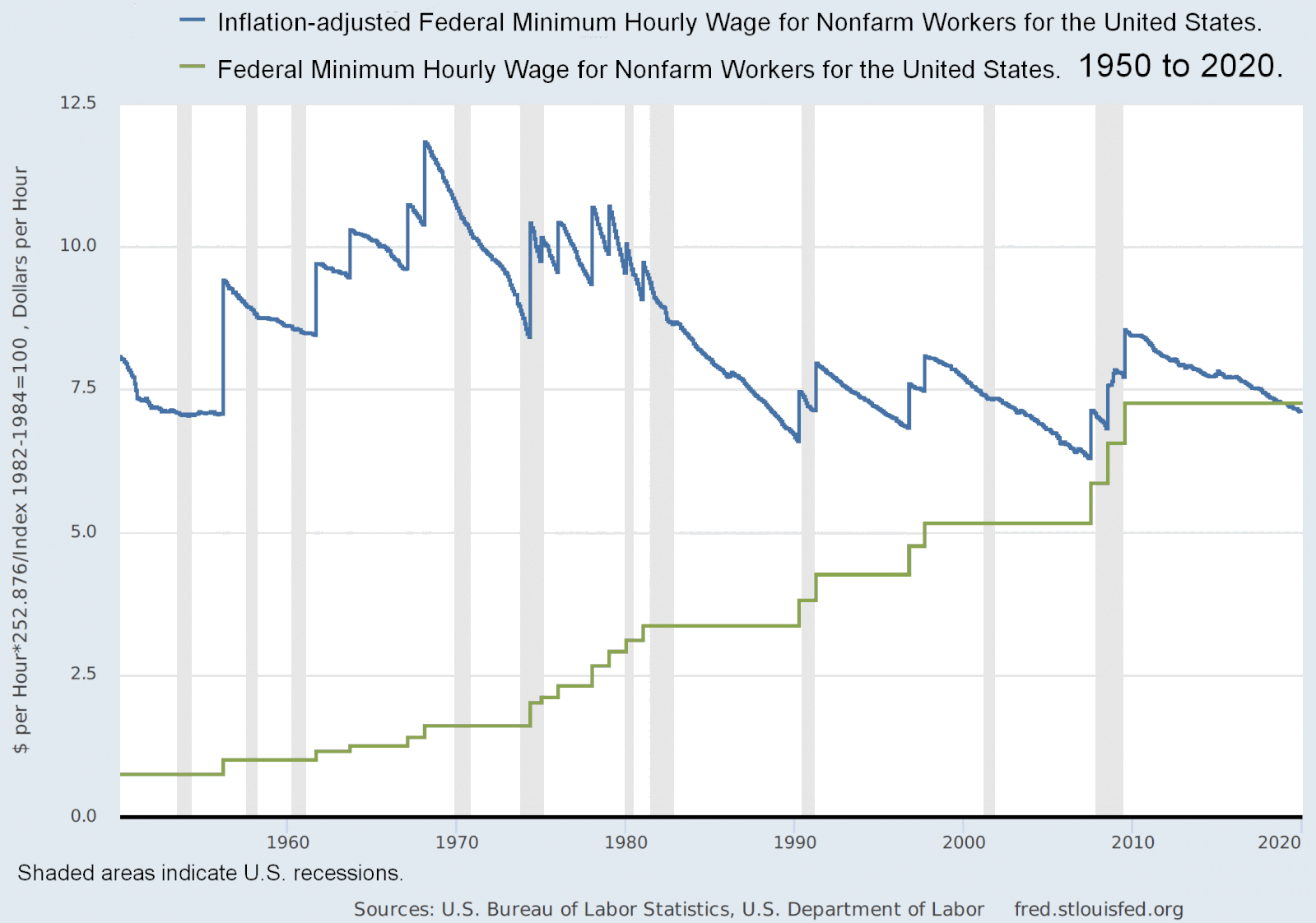The Congressional Budget Office report released earlier this month indicated that a hike in the minimum wage would result in a loss of $1.4 million jobs.
The same report indicated that the increase would bring an estimated 900,000 people out of poverty. However, job losses would occur disproportionately in the demographics a minimum wage increase was designed to help.
According to the National Conference of State Legislatures, 29 states and the District of Columbia have minimum wages over the national $7.25 minimum wage. The Biden administration has proposed raising the minimum wage nationwide to $15 per hour.
[adrotate banner=”19″]
In states like Georgia that still have the $7.25 minimum wage, this could have a domino effect that would be detrimental to job growth and economic development. Economic development does not occur simply because of low labor costs; however, those low labor costs can make a difference in where a company locates its manufacturing location. Not all new jobs are high paying, and the labor costs for support or ancillary companies matter to a new employer.
While those who currently earn minimum wage may see the increase as a positive response to a flat-lined post-pandemic economy, the reality is that the negative implications of the increase will hurt those lower-paid individuals most of all.
When high school students working fast food jobs, seasonal workers, grocery baggers and others earning minimum wage start being paid nearly double, the market will experience consequences. The market must correct its course and balance itself out.
Employers who use minimum wage labor will be forced to make tough decisions. States that have low costs of living will be affected most.
According to a 2020 study, Georgia has a 10.8% lower cost of living than the national average. Georgia ranks ninth as one of the lowest costs of living states in the country. On the other end of the spectrum Hawaii comes in at 92.9% over the national average. California comes in second at 57.1% over the national average with New York at third at 39.1%.
[adrotate banner=”23″]
States with higher costs of living and higher minimum wages will feel less from the effects of a $15 minimum wage. Many of these states have increased their minimum wage as the cost of living in those areas increased. Forcing states like Georgia with a low cost of living nearly to double the minimum wage will artificially force a cost-of-living increase. The effect would be less drastic if a minimum wage increase occurred slowly over time.
If a $15 per hour minimum wage is implemented, areas with low cost of living will suffer the economic consequences. States that currently have higher minimum wages than the federal $7.25 could potentially be forced to increase their minimum wages even higher to adjust for the nation-ide inflation that will occur. It is likely that some companies would also adjust towards technologies that promote automation thus reducing labor costs and further increasing unemployment.
The idea that more dollars being spent in the market will trigger growth is flawed. The value of those dollars will be far lower as prices increase, employment decreases and inflation runs rampant.
In addition to unemployment increasing, inflation must increase to cover the increased costs employers will incur. As employers’ payroll costs increase, they must respond by increasing the cost of the products and services they provide. Making the problem worse as product prices increase, fewer people will be purchasing items slowing growth. This further exacerbates the problem, further hurting employers’ revenues. The result is that employers must raise prices on goods and services even higher and make more cuts to payroll, thus increasing unemployment.
The result for states like Georgia will be inflation, an increase in unemployment, and stagnated economic growth. Growth in states with low costs of living will slow because they can no longer compete with states that have been stagnated for years due to high taxes, a high cost of living and high labor costs.
Joe Edge is the real estate columnist and Publisher for The Augusta Press. Reach him at joe.edge@theaugustapress.com
[adrotate banner=”38″]










